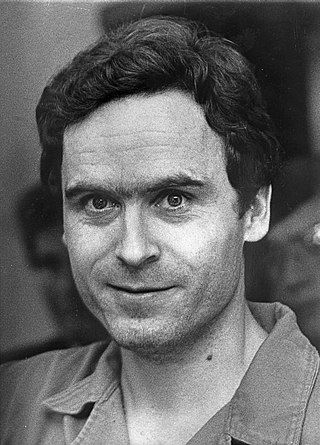A plutocracy or plutarchy is a society that is ruled or controlled by people of great wealth or income. The first known use of the term in English dates from 1631. Unlike most political systems, plutocracy is not rooted in any established political philosophy.

Steven Arthur Pinker is a Canadian-American cognitive psychologist, psycholinguist, popular science author, and public intellectual. He is an advocate of evolutionary psychology and the computational theory of mind.

Hybristophilia is a paraphilia involving sexual interest in and attraction to those who commit crimes. Many high-profile criminals, particularly those who have committed atrocious crimes, receive "fan mail" in prison that is sometimes amorous or sexual, presumably because of this phenomenon. While less common, hybristophilia can also occur in men with female serial killers. In some cases, admirers of these criminals have gone on to marry the object of their affections in prison. In popular culture, this phenomenon is also known as the "Bonnie and Clyde syndrome".

Martin Andreas Nowak is an Austrian-born professor of mathematics and biology at Harvard University. He is one of the leading researchers in evolutionary dynamics. Nowak has made contributions to the fields of evolutionary theory, cooperation, viral dynamics, and cancer dynamics.
Michael Tomasello is an American developmental and comparative psychologist, as well as a linguist. He is professor of psychology at Duke University.
Bradford Gates Rutter is an American game show contestant, TV host, producer, and actor. With over $5.1 million in winnings, he is the second-highest-earning American game show contestant of all time, behind Ken Jennings, and still the highest-earning contestant on the U.S. syndicated game show Jeopardy!.
Dunbar's number is a suggested cognitive limit to the number of people with whom one can maintain stable social relationships—relationships in which an individual knows who each person is and how each person relates to every other person. This number was first proposed in the 1990s by Robin Dunbar, a British anthropologist who found a correlation between primate brain size and average social group size. By using the average human brain size and extrapolating from the results of primates, he proposed that humans can comfortably maintain 150 stable relationships. There is some evidence that brain structure predicts the number of friends one has, though causality remains to be seen.
John Robert Anderson is a Canadian-born American psychologist. As of 2024, he is professor of psychology and computer science at Carnegie Mellon University.
Donald Symons was an American anthropologist best known as one of the founders of evolutionary psychology, and for pioneering the study of human sexuality from an evolutionary perspective. He is one of the most cited researchers in contemporary sex research. His work is referenced by scientists investigating an extremely diverse range of sexual phenomena. Harvard psychologist Steven Pinker describes Symons' The Evolution of Human Sexuality (1979) as a "groundbreaking book" and "a landmark in its synthesis of evolutionary biology, anthropology, physiology, psychology, fiction, and cultural analysis, written with a combination of rigor and wit. It was a model for all subsequent books that apply evolution to human affairs, particularly mine." Symons is Professor Emeritus in the Department of Anthropology at the University of California, Santa Barbara. His most recent work, with Catherine Salmon, is Warrior Lovers, an evolutionary analysis of slash fiction.

Jeffrey Robinson is an American author of 30 books.

David Eagleman is an American neuroscientist, author, and science communicator. He teaches neuroscience at Stanford University and is CEO and co-founder of Neosensory, a company that develops devices for sensory substitution. He also directs the non-profit Center for Science and Law, which seeks to align the legal system with modern neuroscience and is Chief Science Officer and co-founder of BrainCheck, a digital cognitive health platform used in medical practices and health systems. He is known for his work on brain plasticity, time perception, synesthesia, and neurolaw.
A game show is a type of radio, television, or internet program in which contestants, television personalities or celebrities, sometimes as part of a team, play a game which involves answering trivia questions or solving puzzles, usually for prizes. Game shows are usually distinguishable from reality television competition shows, in which the competition consumes an entire season of episodes; in a game show, prizes can typically be won in a single match. Beginning with the first five-figure and six-figure game show jackpots in the mid-1950s, a succession of contestants on various quiz shows of the era each set records. Teddy Nadler of The $64,000 Challenge, the highest-scoring contestant of the 1950s era, was not surpassed until 1980, when Thom McKee won $312,700 on Tic-Tac-Dough. Between 1999 and 2001, during a brief boom in high-stakes game shows, the record was broken six times. Both the 1955–1958 and 1999–2001 eras of rapidly set and broken records were driven primarily by one-upmanship between the networks each trying to secure bragging rights and ratings by inflating their prize offerings, rather than the merits of the contestants themselves. American daytime television has historically had smaller prize budgets for game shows that air in that daypart.

Jeffrey Alan Lieberman is an American psychiatrist who specializes in schizophrenia and related psychoses and their associated neuroscience (biology) and pharmacological treatment. He was principal investigator for CATIE, the largest and longest independent study ever funded by the United States National Institute of Mental Health to examine existing pharmacotherapies for schizophrenia. He was president of the American Psychiatric Association from May 2013 to May 2014.
Rule 34 is an Internet meme which claims that some form of pornography exists concerning every possible topic. The concept is commonly depicted as fan art of normally non-erotic subjects engaging in sexual activity. It can also include writings, animations, images, GIFs and any other form of media to which the Internet provides opportunities for proliferation and redistribution.

Transgender pornography is a genre of pornography featuring transsexual or transgender actors. The majority of the genre features trans women, but trans men are sometimes featured. Trans women are most often featured with male partners, but they are also featured with other women, both transgender and cisgender.

Joshua David Greene is an American experimental psychologist, neuroscientist, and philosopher. He is a professor of psychology at Harvard University. Most of his research and writing has been concerned with moral judgment and decision-making. His recent research focuses on fundamental issues in cognitive science.

Zettai ryōiki refers to the area of bare skin in the gap between overknee socks and a skirt or shorts. It can also be used to describe the clothing combination. The term first became widespread in otaku slang as one of the attributes of moe characters in anime and manga, but it is now used by the general public in Japan.
Elaine Hatfield is an American social psychologist. She has been credited, alongside Ellen S. Berscheid, as the pioneer of the scientific study of love. She is employed as a professor in the psychology department of the University of Hawaii.

Larry Todd Rose is an American scientist, author, professor and social entrepreneur. He is known for being the co-founder and CEO of Populace, a Boston-based think tank. Prior to Populace, Rose was a professor at the Harvard University where he served as the faculty director of the Mind, Brain, and Education program, as well as led the Laboratory for the Science of Individuality.









